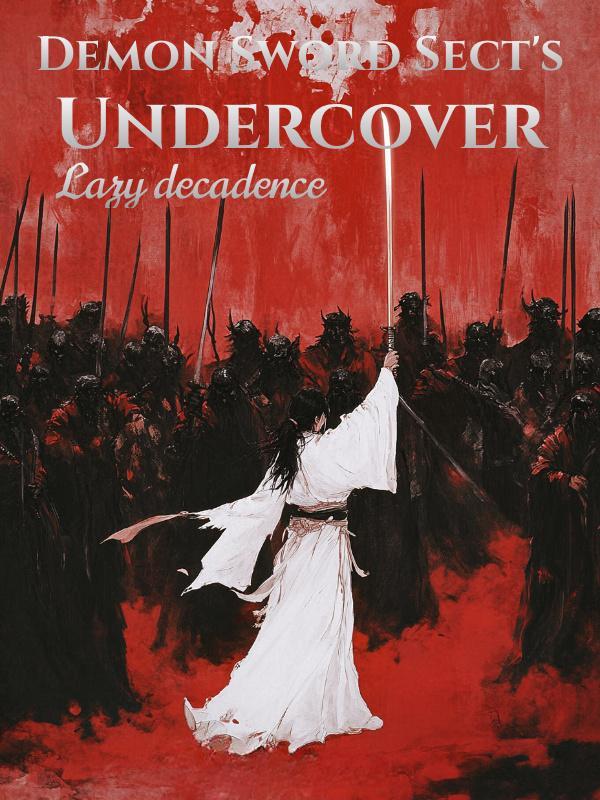©WebNovelPub
Revive Rome: Wait! Why not make the empress fall in love with me first?-Chapter 293 - 91 Preparing for Battle
Chapter 293: Chapter 91 Preparing for Battle
Despite the Wolf and Weisbach families having declared war, it was not as if the Wolf Family could say, "I’m going to attack you," today and then show up at Mingxing City’s doors tomorrow.
In the semi-feudal, semi-industrialized Divine Luo Empire, preparations for war were still relatively lengthy. First came the formal declaration of war, then under the wartime status, the concentrated military forces began to mobilize, mainly calling up the vast number of vassals and knights under one’s command, especially those with Transcendent abilities.
Before the declaration of war, it was, of course, also customary to leak word in advance, allowing one’s subordinates to make at least minimal war preparations, such as material and personnel movements.
However, within the various duchies of Divine Luo, there was no high level of centralized power. Sneak attacks like Japan’s on Pearl Harbor during World War II were ultimately unachievable—there were too many subordinates, their power too dispersed. Secretly notifying and assembling them one by one would result in word getting out to the other side far in advance, with lower efficiency. A direct declaration of war was more convenient than such secrecy.
As Wolf prepared for the upcoming conflict, Weisbach was doing the same. The winds of civil war had been blowing for so long that both parties had already made a basic assessment of the chips in their hands.
Once the war was declared, lords from all over began rapidly recruiting troops, pulling out physically strong subjects to form militias, and the Transcendents in their territories had also been conscripted well in advance.
Physical Transcendents were assigned to assault teams as captains, responsible for leading normal militiamen in battlefield charges; some physically powerful and most Spiritual Transcendents were grouped into special commando units, undertaking special tasks on the battlefield, such as focused fire or targeted assassination.
Of course, those incorporated into the army were lower-level Transcendents. High-level Transcendents were already treated as distinguished guests by the lords. Those willing to serve as generals were entrusted with military power to lead troops, while those unwilling stayed in the lord’s mansion as Guest Elders, to be called upon when necessary.
All were promised noble titles and lands, provided they killed off the opposing family. A significant portion of the captured territory and subjects would belong to these Transcendents, and not even His Majesty the Emperor could interfere. These individuals were destined to become the first wave of noble Transcendents to rise to prominence through war.
In addition to internal forces, external support was, of course, indispensable. Large Mercenary Groups, Swordsman Groups, and military forces from certain neighboring duchies all had a hefty price offered for their recruitment.
At such times, there was no need to be stingy with rewards, for losing the civil war would almost inevitably lead to utter ruin. Hence, from Carinthia to Italy, security on the roads improved significantly—former bandits and highwaymen now reformed en masse, transforming into representatives of XX Mercenary Groups eager to join the war.
"How do you feel, Lord Aske?" Ludwig asked attentively, observing the soldiers training in the camp outside the city.
The whole brother-in-law misunderstanding was embarrassingly incorrect; once it was cleared up, there was no need for further discussion. Ludwig’s attitude towards him had shifted from warmth, to a mix of respect and admiration, seeing him accepted by both the Duke of Bavaria and the Demigod Lord as a rising military talent.
"Not too bad," Aske replied with a "by the book" assessment while watching the soldiers being sorted into well-organized units.
The gap in individual strength in this world was vast, making the quality of potential soldiers quite varied. New recruits, when they first enlisted, were taken by the Recruitment Officers to undergo a "Physical Power Assessment," consisting of running laps (to test Endurance) and hand-to-hand attacks (to test Explosive Power).
Even among Lv.0 ordinary people, the distribution of Extraordinary Power content varied significantly. City dwellers typically had lower levels of Physical Power. In rural villages and mountainous areas, the more remote the region, the higher the level of Physical Power.
Aske had even seen a hunter from the Ahnaus Mountain Area crush iron posts as thick as his thigh with just two punches. Clearly someone who had grown up fighting Extraordinary Creatures in the mountains, the hunter wasn’t a leveled Transcendent, but in terms of pure Physical Power, he was close to a Lv.6 Transcendent.
Those with less than Lv.4 Physical Power fell into the category of ordinary people. They were drafted into the Weisbach’s regular army, issued a set of cloth armor with scant defensive power, a Divine Luo standard-issue HR100 assault rifle—akin to the AK47 in the real world, cheap and durable—as well as a 7.62 mm bullet belt.
The conventional army’s role was to go onto the battlefield, take up their guns, and, regardless of the level of the enemy charging at them, just aim and pull the trigger. As for life and death, that was left to fate.
Anyone with physical power above Lv.4 would be difficult to kill with just a few bullets and belonged to a higher stratum of elite soldiers. Besides the HR100 assault rifle and ammunition, they were additionally equipped with rudimentary yet heavy bullet-proof armor, bullet-proof shields, and military-grade steel longswords.
The mission of these elite soldiers on the battlefield was to charge forward with their bullet-proof shields, advance despite the enemy’s gunfire and eliminate the enemy’s living forces.
Due to their equipment and physical advantages, it was difficult to kill them with ordinary rifles in close combat. So, elite soldiers against conventional armies was still a shootout with firearms, while combat between elite troops involved swinging cold weapons at each other. Since both sides had bodies that bullets couldn’t penetrate, it was simply a matter of slicing the enemy apart with swords, and whoever was physically stronger would survive.
It was precisely because of this that the war formulas of this world were far more complex than those of our real world. The shootout of hot weapons among conventional armies still followed the Lancaster’s Square law, while hand-to-hand combat with cold weapons among elite soldiers depended more on the quality of the troops. Add to that the various fancy abilities of the "Transcendents," and warfare becomes extremely strange and ever-changing. One moment you might have the absolute advantage, and the next, you could be suddenly overturned, and it’s not impossible at all.
"Speaking of which, how is the quality of your troops compared to the enemy?" Aske asked.
"Not to brag, but we definitely have more elite soldiers in Bavaria," Ludwig said. "After all, Burgundy was what was known as the exterior and interior Gaul in the Third Epoch and was conquered by the Ancient Solomon Republic a long time ago."
"Now, their civilization is more advanced, their economy richer, and correspondingly the quality of their troops is somewhat inferior while Bavaria was only developed at the end of the Fourth Epoch, so we surely have the advantage in this respect."
"So you mean, they have more people and better equipment, but your side has stronger troop quality," Aske summed up.
"Pretty much," Ludwig said with a smile.
He invited Aske to come over to review the troops and ask for his opinion, not really to seek advice, but just as a gesture, to convey an attitude towards the war.
Aske was of course clear about this. In the main storyline of the original game, the Emperor’s faction ended up winning the civil war, so in response to Ludwig’s communication and probing, he openly expressed an optimistic expectation for the war, greatly reassuring Ludwig.
"In fact, I am not worried about the civil war with the Wolf Family," Aske said frankly. "The key is that after defeating the Wolf Family, His Majesty the Emperor’s prestige will reach its peak, and then it will be time to move troops southward, right?"
"Going south" to battle the Church Court was also a traditional skill of the Divine Luo Empire. When the Emperor’s father was in power, he took advantage of the "Thirteen Families Turmoil" within Solomon City, led a large army across the Alps, and swallowed up Lombardy, which was then an independent country that submitted to the Church Court (now the Imperial Lombardy Territory).
The outcome forced Pope John to personally crown him and sign the so-called Otto Privilege Agreement, which stipulated that the Solomon Pope must be loyal to the Emperor of the Divine Luo Empire, and the selection of the Pope’s successor was decided by the Emperor, placing the Divine Luo Empire’s monarchy above the Church Court’s religious authority.
This agreement was frankly a disgrace, which Pope Innocent overturned immediately upon ascending to the papacy, leading directly to the rift between the Church Court and the Empire.
This was also the beginning of a series of worldwide wars in the main storyline of the "Iron and Fire" game.
"Yes," Ludwig said with a worried look. To be fair, he was confident in fighting the Wolf Family, but taking on the Church Court was a suicide mission, wasn’t it? One nuclear bomb dropped, and no number of people would be enough.
"For now, we can only take it one step at a time."
Visit freewe𝑏no(v)el.𝘤𝑜𝓂 for the best novel reading experi𝒆nce







